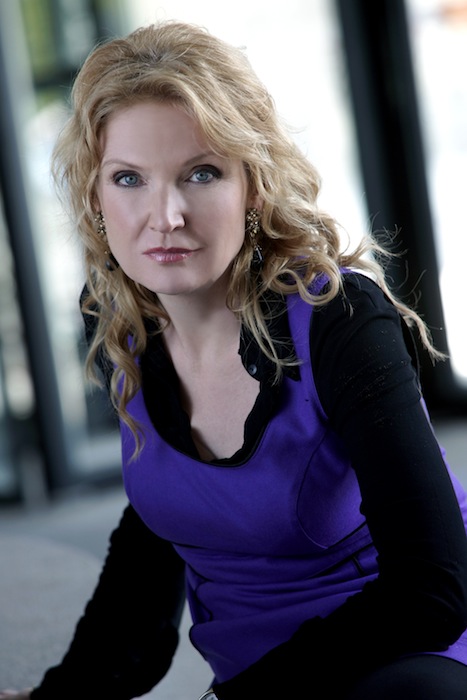Anne Schwanewilms brings elegant intensity to vocal recital

Soprano Anne Schwanewilms performed a recital for Vocal Arts DC Thursday night. Photo: Javier del Real
The faithful of the Lieder recital series sponsored by Vocal Arts DC are not about to be turned off by an evening of gloomy songs. They were not the last time Anne Schwanewilms appeared in Washington, in 2010, and they were not on Thursday night for the German soprano’s program of Richard Strauss and Hugo Wolf at the UDC Theatre of the Arts.
Until perhaps Strauss’s “Die Nacht” at the end of the concert, and certainly the encore of the same composer’s “Morgen,” none of these songs was exactly familiar. The opening set presented a challenge, a series of tense and subdued Strauss pieces that required absolute concentration and consummate vocal control.
Throughout the evening Schwanewilms floated pearly-soft high notes, as at the end of Strauss’s “Du meines Herzens Krönelein,” in an intense performance of unadorned elegance. Her partner, pianist Malcolm Martineau, set the stage admirably, for example, in the lilting triplet motif in “Traum durch die Dämmerung” and other delicate textures at the keyboard.
That approach worked perfectly for the sets of Wolf songs, all set to the poetry of Eduard Mörike, detailed explorations of the most personal sorts of melancholy. Schwanewilms needed no emoting or unnecessary movement to bring across the desolation of the abandoned maiden in “Das verlassene Mägdelein,” or the bleak solitude of impending death in “Wo find ich Trost.” She reached a high point in the demanding high writing of “Der Genesene an die Hoffnung,” with beautifully placed pianissimo notes.
Not so much in the Wolf songs, but in some of the larger Strauss pieces, however, her attempt to produce a broader, less delicate sound was just not sufficient. The rollicking expansion of “In goldener Fülle” worked quite well, but more sound was needed, for example, to pull off the end of “Geduld.” Some connections between her vocal registers did always line up smoothly, the vocal equivalent of a slight grinding of the gears.
The focus on songs that flattered the quiet stillness that Schwanewilms could produce had a potentially soporific effect, made worse by the stuffy warmth of the auditorium. Strauss’s “Weisser Jasmin” and “Den Rosenband,” followed by the manic-depressive oddities of his “Sie trugen ihn auf der Bahre bloss” and the enigmatic “Im Frühling” of Wolf, were all of a piece. Schwanewilms consistently produced a placid and controlled sound, animated by a caressing of the poetry in her diction, married to the judicious touch of Martineau at the piano.
Exceptions came when the text challenged Schwanewilms for an unusual characterization, especially in Strauss’s settings of odd folk songs. She produced a chilling sound, a sort of disembodied voice, when the shade of the mother speaks to her daughter in “Wer lieben will, muss leiden.” In particular, “Wie erkenn ich mein Treulieb” elicited a disturbing mad scene from Schwanewilms, the text translated from a song sung by Ophelia in Shakespeare’s Hamlet. Martineau brought out the wandering nature of the ostinato motif in his right hand, which continued on after the singer fell silent, almost like the insistent voices in her head.
Strauss’s “Ach, was Kummer, Qual und Schmerzen,” which had served as encore for Schwanewilms in 2010, here provided a much-needed moment of comic lightness to end the first half. She deployed an entire vocabulary of shrugs, hints, and eyerolls to accompany the hummed refrains, things she “dare not say,” often chastened by loud chords from Martineau in the accompaniment. In a cute ending, she raised her arms in a silent scream.
Vocal Arts DC ends its season with a recital by Polish tenor Piotr Beczala 7:30 p.m. May 3 at UDC Theatre of the Arts. vocalartsdc.org; 202-669-1463.

Posted Apr 21, 2017 at 7:58 pm by Laura Youens
I wish I had heard this!
Posted Apr 29, 2017 at 7:58 pm by Chongok Tseng
I like her photo here very much. It was a very academic song recital. That is what we need for vocal arts recitals sometimes.
I enjoyed it very much. Thanks for your detailed review.